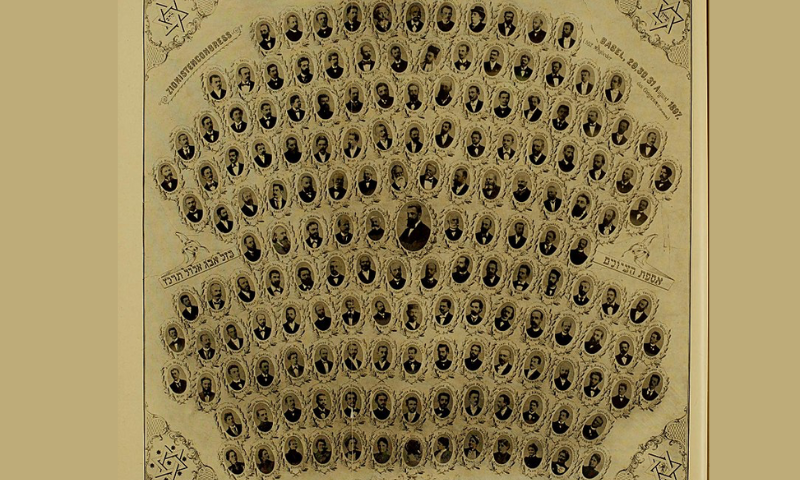Bonnie K. Goodman
Times of Israel, Aug. 30, 2022
“Bettelheim described Herzl as the Congress’ president as “a miracle . . . as if King Solomon had arisen from his grave, because he could no longer bear the suffering of his people and its humiliation.’”
On this day in history… August 29–31, 1897, Theodor Herzl convenes the First Zionist Congress in Basel, Switzerland, the first secular meeting about creating a Jewish state. [1]
In 1894 France, Theodor Herzl, an Austro-Austrian journalist and playwright with a doctorate in law covered Captain Alfred Dreyfus’s trial for treason for the Viennese paper the Neue Freie Presse. The French captain’s case was more about antisemitism than treason, with calls by the public to kill Frances’ Jews despite them being emancipated for over 90 years. In the same year, Herzl wrote the play “The Ghetto” (1894), outlining that he no longer believed assimilation would end antisemitism; the only solution was a homeland for Jews. In 1896, Herzl wrote “Der Judenstaat” (The Jewish State, 1896), his grand manifesto outlining his plans for political Zionism to create a socialist and secular state. Herzl has spent his life and career hiding from his Judaism. However, with his belief in Zionism and leadership role, he began to embrace his Jewish identity and name Binyamin Ze’ev. In June 1897, Herzl created the Zionist newspaper, “Die Welt,” and after the Congress in September 1897, Herzl declared, “no true Jew can be an anti-Zionist.” (Penslar, 114)
To move forward, Herzl wanted to create an organization that would work to realize a Jewish state, and he wanted to convene a Zionist Congress. According to historian Derek Penslar in Theodor Herzl: The Charismatic Leader, the Congress would serve as a “national parliament that would meet regularly and would authorize the creation of a council to manage the diplomatic enterprise.” (Penslar, 107) Herzl faced opposition after opposition to his Congress from many within the Jewish community. Especially the Orthodox rabbinate, which thought Herzl’s vision of a Jewish, violated the tenets of Judaism, which placed the Torah and commandments at the center of the religion.
Additionally, Herzl wanted the Congress held in Munich, Germany, because of its centrality and access to kosher food. Still, the Orthodox and Reform rabbinate opposed the idea because they opposed Zionism, believing it countered religion and devotion to their nation. Herzl decided on having the Congress in Basal, Switzerland because the small town had no conflicts with hosting the Congress. There was a small Jewish community, and the Chief Rabbi did not oppose Congress. However, there was no kosher slaughtering allowed in the country, but they could bring meat from Germany. They rented the City Casino, which had a concert hall. …Source


